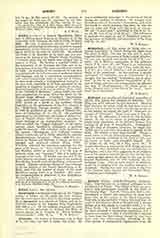

Achiacharus is mentioned only once in the Vulgate version of Tobias (xi, 20, under the form Achior), but the name occurs four times in the Greek versions. He is represented as a nephew of Tobias, and an influential minister of the Assyrian King Esarhaddon (681-668 B.C.) On the relation, supposed by some critics, of this personage to Ahiakar the Wise, of eastern legend, see E. Cosquin, in “Revue biblique Internationale”, 1899, 50 sq.
W.S. REILLY

